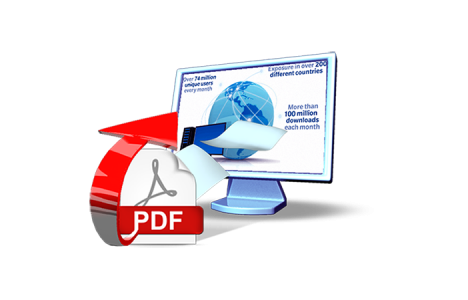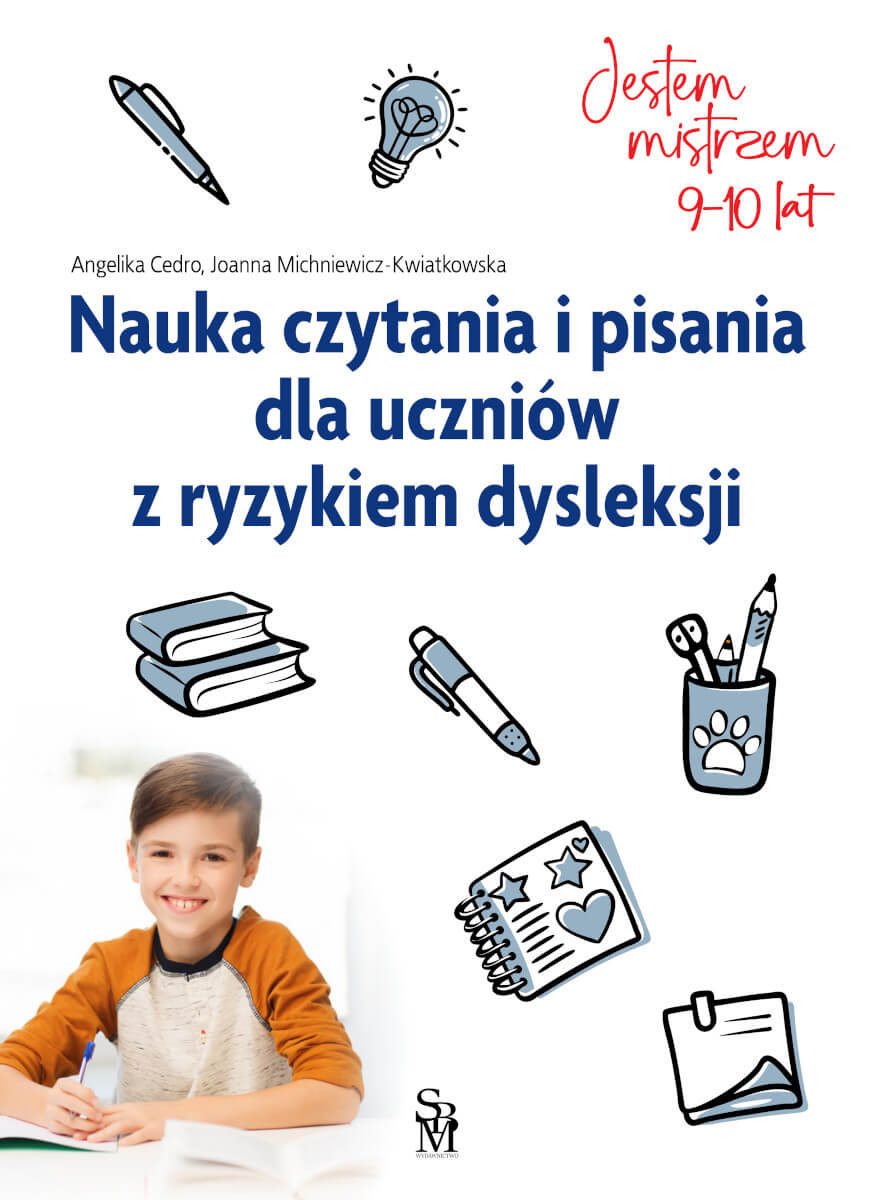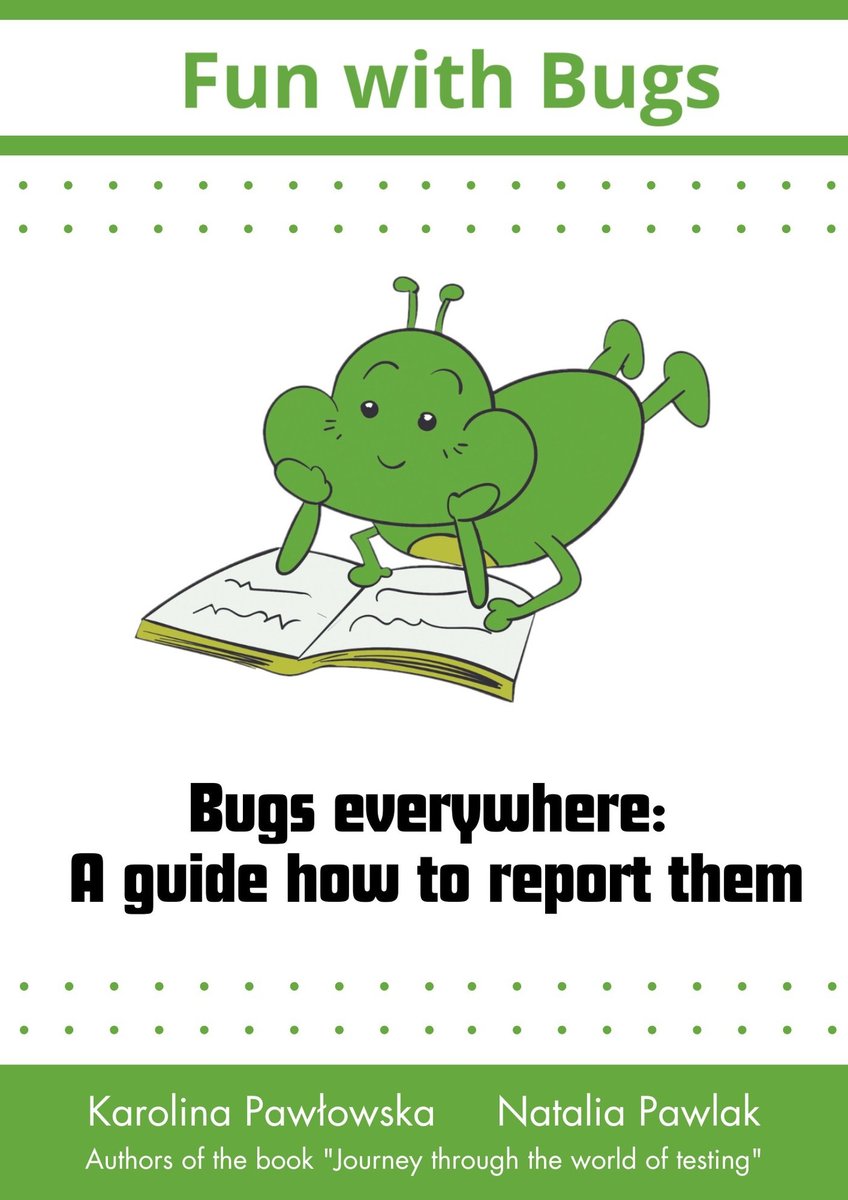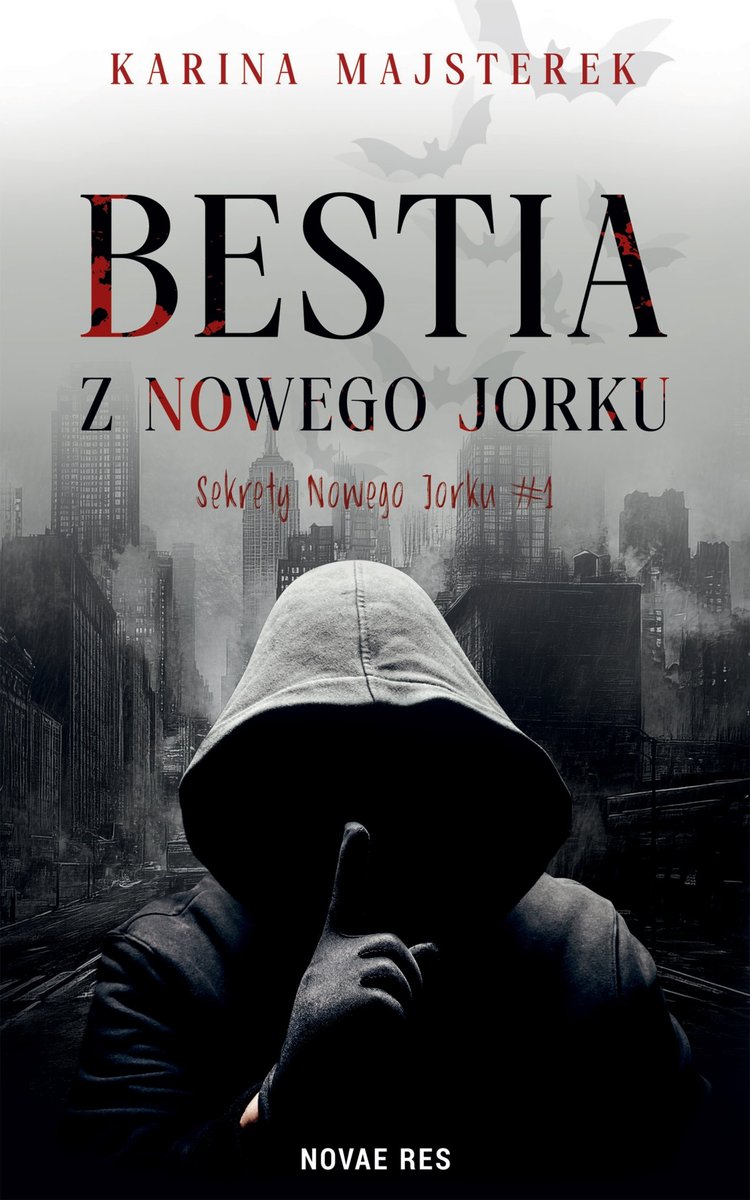
Średnia Ocena:
Upstream upper intermediate. Teacher's book
Upstream Upper Intermediate B2+ is a modular secondary-level course for learners of the English language at upper-intermediate level. The series combines active English learning with a variety of lively topics presented in themed units.
| Szczegóły | |
|---|---|
| Tytuł | Upstream upper intermediate. Teacher's book |
| Autor: | Obee Bob |
| Rozszerzenie: | brak |
| Język wydania: | polski |
| Ilość stron: | |
| Wydawnictwo: | Egis Sp. z o.o. |
| Rok wydania: | |
| Tytuł | Data Dodania | Rozmiar |
|---|
Upstream upper intermediate. Teacher's book PDF - podgląd:
Jesteś autorem/wydawcą tej książki i zauważyłeś że ktoś wgrał jej wstęp bez Twojej zgody? Nie życzysz sobie, aby podgląd był dostępny w naszym serwisie? Napisz na adres [email protected] a my odpowiemy na skargę i usuniemy zgłoszony dokument w ciągu 24 godzin.
Pobierz PDF

To twoja książka?
Wgraj kilka pierwszych stron swojego dzieła!Zachęcisz w ten sposób czytelników do zakupu.
Upstream upper intermediate. Teacher's book PDF transkrypt - 20 pierwszych stron:
Strona 1
ISBN 978-83-7396-316-0
Strona 2
Original edition published by Express Publishing
Liberty House, New Greenham Park, Newbury, Berkshire RG19 6HW
Tel.: (0044) 1635 817 363 Fax: (0044) 1635 817 463
e-mail: [email protected]
© Bob Obee - Virginia Evans, 2003
© Express Publishing, 2003
Polish edition copyright © by EGIS
Redaktor prowadzący: Paweł Gruchała
Tłumaczenie: Małgorzata Słota
Skład: Paweł Gruchała
Naświetlanie: Lettra Graphic
Druk: Zakłady Graficzne „Drukarz”
This Polish edition is published by arrangement with Express Publishing
Made in EU
All rights reserved. No part of this publication may be reproduced,
stored in a retrieval system or transmitted in any form, or by any
means, electronic, photocopying or otherwise, without the prior
written permission of the publishers.
Wszelkie prawa zastrzeżone. Żadna część tej pracy nie może być powielana,
czy rozpowszechniana w jakiejkolwiek formie w jakikolwiek sposób,
bądź elektroniczny, bądź mechaniczny, włącznie z fotokopiowaniem,
nagrywaniem na taśmy lub przy użyciu innych systemów, bez pisemnej
zgody wydawcy.
First published 2003
ISBN 960-361-636-2
This edition is published in 2004
Printed in Poland by EGIS
ul. Pilotów 71, 31-462 Kraków
e-mail: [email protected]
www.egis.com.pl
ISBN 83-7396-316-2 (Polish edition)
Strona 3
Companion
Bob Obee – Virginia Evans
Strona 4
Strona 5
Contents
A. Upstream Upper-Intermediate – Coursebook
Unit 1 Crossing Barriers ......................................................................................................................... 5
Unit 2 Moods and Feelings .................................................................................................................... 14
Self-Assessment Module 1 ........................................................................................................................... 23
Unit 3 Making a Living ........................................................................................................................... 24
Unit 4 Make Yourself at Home .............................................................................................................. 34
Self-Assessment Module 2 ........................................................................................................................... 43
Unit 5 Modern Living ............................................................................................................................. 44
Unit 6 Going Places ............................................................................................................................... 57
Self-Assessment Module 3 ........................................................................................................................... 69
Unit 7 History ........................................................................................................................................ 70
Unit 8 Learning Lessons ......................................................................................................................... 79
Self-Assessment Module 4 ........................................................................................................................... 91
Unit 9 Planet Issues ................................................................................................................................ 92
Unit 10 The Cycle of Life ......................................................................................................................... 100
Self-Assessment Module 5 ........................................................................................................................... 109
B. Upstream Upper-Intermediate – Workbook .................................................................................. 111
C. Index to the Vocabulary ....................................................................................................................... 126
3
Strona 6
Key to Phonetic Symbols – Wykaz symboli fonetycznych
Vowels – Samogłoski
≤ calm, ah √ boy, joint
± act, mass μ could, stood
¡ drive, cry ∂ you, use
¡º fire, tyre Δ lure, pure
¬ out, down ª turn, third
¬º flour, sour ∑ fund, must
e met, lend, pen º pierwsza samogłoska w słowie about
Ω say, weight i druga samogłoska w słowie very
≈ fair, care u druga samogłoska w słowie actual
æ fit, win r „r“ łączące, występujące niekiedy na końcu
∞ feed, me wyrazów takich jak mother, assure lub for ,
ƒ near, beard jeśli następuje po nich samogłoska
≥ lot, spot º druga samogłoska w słowach takich jak bottle
oμ note, coat lub shorten, zanikająca w szybkiej wymowie
¥ claw, faun
Consonants – Spółgłoski
b bed, rub s soon, bus
d done, red t talk, bet
f fit, if v van, love
g good, dog w win, wool
h hat, horse z zoo, buzz
j yellow, you « ship, wish
k king, pick » measure, leisure
l lip, bill … sing, working
m mat, ram ∏ cheap, witch
n not, tin ı thin, myth
p pay, lip ∫ then, bathe
r run, read π joy, bridge
Podkreślona jest samogłoska w sylabie, na którą pada akcent, np. attic /±tæk/, isolated /¡sºleætæd/
Jeśli podkreślone są dwie sylaby, akcent na pierwszej z nich jest poboczny (słabszy), np. navigation /n±væge櫺n/
Abbreviations – Wykaz skrótów
abbrev = abbreviation (skrót) phr v = phrasal verb (czasownik złożony)
adj = adjective (przymiotnik) prep = preposition (przyimek)
adv = adverb (przysłówek) pron = pronoun (zaimek)
conj = conjunction (spójnik)
pp = past participle (imiesłów bierny)
det = determiner (określnik)
sb = somebody (ktoś)
exp = expression (wyrażenie, zwrot)
n = noun (rzeczownik) sth = something (coś)
pl = plural (liczba mnoga) U = uncountable (niepoliczalny)
phr = phrase (fraza, kolokacja) v = verb (czasownik)
4
Strona 7
Crossing Barriers 1
Lead-in (p. 7) e.g. Sharon speaks six languages; in fact I’d describe
her as multilingual.
1.1 region /r∞πºn/ (n) = a large area / region 1.11 benefit /benæfæt/ (v) = to take advantage of sth /
e.g. India is one of the most densely populated regions skorzystać z czegoś
in the world. e.g. Both sides have benefited from the talks.
Der.: regional (adj), regionally (adv) Der.: beneficial (adj), beneficiary (n)
1.2 negotiations /nægoμ«iΩ«ºnz/ (n pl) = formal 1.12 diversity /d¡vªsºti/ (n) = variety / różnorodność,
discussions in order to reach an agreement / wielość
negocjacje e.g. There still exists quite a diversity of accents in the
e.g. The General Workers Union are going on strike as British Isles, although some regional accents are dying
pay negotiations between them and the government out.
have had little success up to now. Der.: diversify (v), diversification (n)
Der.: negotiator (n), negotiable (adj) 1.13 field /f∞ld/ (n) = a subject of study or type of activity /
1.3 conduct /kºnd∑kt/ (v) = to carry out / (prze)prowadzić pole, dziedzina (nauki)
e.g. The 2000 Olympic Games were conducted with e.g. He is an expert in the field of pharmacology at the
great success. University of Warwick.
Der.: conduct (n) /k≥nd∑kt/, misconduct (n) 1.14 mother tongue /m∑∫º t∑…/ (n) = native language /
1.4 international trade /æntºn±«ºnºl trΩd/ (n) język ojczysty
= commerce carried out on a world basis / e.g. I don’t think English is his mother tongue. He does
handel międzynarodowy speak it impeccably, though.
e.g. The war between the two countries has affected Opp.: foreign language
international trade as well. 1.15 proficient /prºf櫺nt/ (adj) = skilful / biegły (np. o znajo-
1.5 attend /ºtend/ (v) = to be present at (lessons, mości języka)
lectures, classes) / uczęszczać, chodzić (na lekcje, e.g. Her French is just about proficient enough to
wykłady) deliver a speech in that language.
e.g. At school, I attended classes in Latin and Ancient Der.: proficiency (n)
Greek. 1.16 figure /fægºr/ (n) = a number / liczba
Der.: attendance (n), attendant (n), attention (n) e.g. It will not be long before the inflation figure starts
1.6 conflict /k≥nflækt/ (n) = disagreement and argument / to fall.
konflikt 1.17 access /±kses/ (v) = to get into sth, enter / uzyskać
e.g. The Middle East conflict has been raging for dostęp, wejść (do czegoś)
years with victims on both sides. e.g. You cannot access the company’s files without
Der.: conflict (v) /kºnflækt/ a password.
1.7 aspect /±spekt/ (n) = a point of view / aspekt Der.: access (n), accessible (adj), accessibility (n)
e.g. Which aspects of your job do you find most 1.18 growth area /groμı eºriº/ (n) = an area that is
interesting? increasing in size or activity / obszar dynamicznie
Reading (pp. 8-9) rozwijający się
e.g. Both Europe and Asia are growth areas for
1.8 web page /web pΩπ/ (n) = a set of data which is companies conducting e-business.
designed to be viewed as part of a website / 1.19 website /webs¡t/ (n) = a set of data on the Internet
strona WWW about a particular subject / witryna WWW (zbiór
e.g. I’ve searched the Net for the web pages you stron WWW)
suggested but they had been removed. e.g. We are building a new company website with the
1.9 to do shopping online (exp) = to buy things via the help of some of the country’s top web designers.
Internet / robić zakupy przez Internet 1.20 linguistic /læ…gwæstæk/ (adj) = related to languages /
e.g. I prefer shopping online to visiting shops. językowy
1.10 multilingual /m∑ltilæ…gwºl/ (adj) = involving several e.g. Her linguistic abilities helped her secure
different languages / wielojęzyczny a translator’s position.
5
Strona 8
UNIT 1
Der.: linguistically (adv) e.g. He runs a local company that designs and
1.21 automated /¥tºmΩtæd/ (adj) = done by machines / manufactures swimwear.
zautomatyzowany 1.32 target market /t≤gæt m≤kæt/ (n) = a market in which
e.g. Even booking a theatre ticket these days is a company is trying to sell goods or services /
automated – you never actually speak to anybody. rynek docelowy
1.22 challenge /∏±lænπ/ (n) = a difficult situation that e.g. We decided that we needed to change our target
demands effort / wyzwanie market from the over-45s to 35-45s.
e.g. When I accepted this job, I was looking for a new 1.33 expand /æksp±nd/ (v) = to get bigger, increase /
challenge and ways to channel my creative ability. rozrastać się, rozszerzać działalność
Der.: challenging (adj) e.g. I think it’s time this firm expanded. Last year’s
1.23 local currency /loμkºl k∑rºnsi/ (n) = the money used profits mean we can open a new store in Chiswick as
to pay for goods and services in a specific planned.
country / miejscowa waluta Der.: expansion (n)
e.g. I have no idea what the local currency in 1.34 scan /sk±n/ (v) = to look through written material
Mongolia is, but I’m sure they’ll accept dollars. quickly to find important information / przeglądnąć
1.24 format /f¥m±t/ (n) = any general arrangement of szybko tekst w poszukiwaniu istotnych informacji
sth / format e.g. Could you just scan this document, Derek, and tell
e.g. Only the format of the exam has changed; the me whether you agree with it in principle.
level of difficulty is the same. Der.: scanner (n), scanning (n)
1.25 adapt /ºd±pt/ (v) = to adjust / przystosować (się) 1.35 drawback /dr¥b±k/ (n) = a disadvantage / wada, zła
e.g. It can be quite difficult adapting to the climate. strona czegoś
It’s always far too hot for me in summer. e.g. The only drawback of moving to London was that
Der.: adaptation (n), adaptive (adj) Sarah wouldn’t see her parents so often.
1.26 offend /ºfend/ (v) = to insult / obrazić/urazić kogoś Opp.: advantage
e.g. I didn’t want to offend her but I told her she
Language Focus (pp. 10-11)
looked about 45 and she’s only 38!
Der.: offensive (adj), offence (n) 1.36 collocate /k≥lºkΩt/ (v) = (of words) to be used
1.27 vast /v≤st/ (adj) = immense, huge / ogromny, wielki, together regularly, to sound correct together /
rozległy (o słowach) występować razem w utartych frazach
e.g. Stretching over 10 time zones and four mountain i zwrotach, dobrze razem brzmieć
ranges, Russia is a country of staggeringly vast e.g. ‘Hard’ collocates with ‘work’ but ‘strong’ does not.
proportions. Der.: collocation (n)
Der.: vastness (n), vastly (adv) 1.37 text message /tekst mesæπ/ (n) = a written message
Opp.: minute /m¡nj∂t/ you send using a mobile phone / SMS, wiadomość
1.28 overnight /oμvºn¡t/ (adv) = without warning, tekstowa wysyłana telefonem komórkowym
suddenly / nagle, z dnia na dzień e.g. I’ve just received the funniest text message from
e.g. His business empire went bankrupt literally Gloria. Read that!
overnight and he ended up living on the streets. Der.: text messaging (n)
1.29 guaranteed /g±rºnt∞d/ (adj) = certain / 1.38 face to face (exp) = to meet, talk or look at sb
zagwarantowany, pewny directly / twarzą w twarz (spotkać się, porozmawiać)
e.g. If you invest in this pension plan, you are e.g. I’d like to meet face to face since I’m not all that
guaranteed to make a steady income upon your good on the phone.
retirement. 1.39 official /ºf櫺l/ (adj) = recognised by authority /
1.30 meanwhile /m∞nw¡l/ (adv) = in the meantime / oficjalny, urzędowy
tymczasem e.g. Official documents released today reveal that the
e.g. I suggest you try and forget about your recent government is highly concerned about
problems and in the meanwhile drink less coffee and unemployment.
try to get to bed earlier. Der.: officially (adv)
1.31 local company /loμkºl k∑mpºni/ (n) = small business Opp.: unofficial
/ niewielkie przedsiębiorstwo, firma o lokalnym znaczeniu
6
Strona 9
UNIT 1
1.40 efficient /æf櫺nt/ (adj) = able to do tasks successfully 1.50 figure of speech /fægºr ºv sp∞∏/ (n) = an expression
without wasting time or energy / wydajny, skuteczny or word that is used with a metaphorical rather
e.g. I don’t think he’s very creative, but he’s efficient. than a literal meaning / figura retoryczna
He gets the work done. e.g. Of course, I didn’t mean to hurt anybody’s feelings.
Der.: efficiency (n), efficiently (adv) It was just a figure of speech.
Opp.: inefficient 1.51 gesture /πest«ºr/ (n) = a body movement to show
1.41 reliable /ræl¡ºbºl/ (adj) = dependable / wiarygodny, sth (a feeling, an idea, etc) / gest
niezawodny e.g. I love some of those Italian gestures. They’re so
e.g. She’s about the most reliable person at work. expressive.
She’s never late, never ill and hasn’t let us down yet. Der.: gesture (v), gesticulate (v)
Der.: reliability (n), reliably (adv) 1.52 chatterbox /∏±tºb≥ks/ (n) = sb who talks a lot /
Opp.: unreliable gaduła
1.42 yell /jel/ (v) = to shout loudly / krzyczeć, wrzeszczeć e.g. You’re such a chatterbox. Don’t you ever stop
e.g. Could you try not to yell when you’re talking! talking?
Some of us are trying to get some work done. 1.53 be out of touch with sth (exp) = not to be familiar
Der.: yell (n) with sth / nie być zorientowanym w czymś
1.43 weep /w∞p/ (v) = to cry / płakać, łkać e.g. I haven’t lived there for over 20 years, so I’m a bit
e.g. Sue’s very emotional. She keeps weeping out of touch with what goes on there.
whenever we watch romance films. 1.54 get hold of sb (exp) = to find sb / złapać kogoś,
Der.: weep (n) skontaktować się z kimś
1.44 giggle /gægºl/ (v) = to laugh in a silly, uncontrolled e.g. I’ve been phoning her for hours but I haven’t
way, usu. when nervous, amused or embarrassed / managed to get hold of her yet.
chichotać 1.55 lose contact with sb (exp) = not to communicate
e.g. Those girls are always giggling. I don’t know what with sb any longer / stracić z kimś kontakt
they find so funny all the time. e.g. I lost contact with most of my school friends after
Der.: giggle (n), giggly (adj) we all went to different universities.
1.45 yawn /j¥n/ (v) = to open the mouth wide and 1.56 harbour master /h≤bº m≤stºr/ (n) = the official in
breathe in more air than usual to show that one charge of a harbour / kapitan portu
is tired or bored / ziewać e.g. The harbour master told us to report to his office
e.g. Most of the students looked bored and yawned and give him some details of our yacht.
throughout the lecture. 1.57 hold the line (exp) = to wait to talk to sb over the
1.46 clap /kl±p/ (v) = to hit one’s hands together to show phone, hold on / czekać na połączenie telefoniczne
approval, to applaud / klaskać e.g. I’d like to speak to Jeremy Benson please.
e.g. We all clapped the players off the pitch; it was – Of course, hold the line, please.
after all a fine team performance. 1.58 come into touch with sb (exp) = to communicate
Der.: clap (n) with sb / nawiązać kontakt, stykać się
1.47 accent /±ksºnt/ (n) = a particular sound in speech e.g. As a diplomat, my father comes into touch with
typical of a country or region / akcent many interesting people.
e.g. Gerald’s accent is almost impossible to 1.59 wave /wΩv/ (v) = to raise and move the hand to say
understand; which part of Britain is he from? hello or goodbye / machać (ręką)
Der.: accented (adj) e.g. The little boy waved to his mother as the school
1.48 native language /nΩtæv l±…gwæπ/ (n) = sb’s first bus pulled away from the curb.
language, mother tongue / język ojczysty 1.60 glare /gl≈r/ (v) = to look with anger or hatred /
e.g. Besides speaking his own native language, patrzeć na kogoś z niechęcią
French, he can also speak Spanish, German and e.g. I didn’t like the way my boss glared at me just
English. then. I think I hadn’t done anything wrong.
1.49 small talk /sm¥l t¥k/ (n) = polite conversation about Der.: glare (n), glaring (adj), glaringly (adv)
unimportant things that people make at social 1.61 chat /∏±t/ (v) = to talk informally / gawędzić z kimś
occasions / niezobowiązująca, towarzyska rozmowa e.g. I’ve just spent the last hour chatting to our new
e.g. Smiling before the cameras, the two men strained neighbour about his garden.
to make small talk. Der.: chat (n), chatty (adj)
7
Strona 10
UNIT 1
1.62 wink /wæ…k/ (v) = to close and open one eye quickly, e.g. One of the most striking examples of her
usu. in a joking or flirting way / mrugnąć generosity is the amount of money she donates to
e.g. Did you see Josh wink at me? I bet he ‘s playing charities every year.
one of his tricks again. Der.: strikingly (adv)
Der.: wink (n) 1.72 keen on /k∞n ºn/ (adj) = enthusiastic about /
1.63 shake hands (exp) = to greet sb by extending one’s entuzjastycznie do czegoś nastawiony
hand / uścisnąć rękę (na powitanie lub pożegnanie) e.g. I’ve never been keen on boxing. It’s far too violent
e.g. He always shakes hands when he’s introduced to for me.
people. Der.: keenly (adv)
Listening & Speaking (pp. 12-13) Reading: Culture Clip (pp. 14-15)
1.64 attitude /±tætj∂d/ (n) = a view towards sth or sb / 1.73 disability /dæsºbælºti/ (n) = sth that takes away
stosunek, podejście (do kogoś lub czegoś) a normal ability, esp. as a result of a birth defect,
e.g. Over the years, there’s been a general change in accident or disease / niesprawność, upośledzenie
attitude towards football; it’s not regarded as a men’s e.g. Although my grandmother has to use
sport any more. a wheelchair, she doesn’t let her disability stop her
Der.: attitudinal (adj) from doing what she wants to do.
1.65 helpline /helpl¡n/ (n) = a special telephone line that Der.: disabled (adj)
people use in order to ask for advice / serwis 1.74 Sign Language /s¡n l±…gwæπ/ = movements of
telefoniczny hands and arms used to communicate / język
e.g. If you have difficulty in operating your PC call the migowy
company’s helpline. e.g. Her son used sign language to tell her what had
1.66 reassure /r∞º«μºr/ (v) = to make sb believe that sth happened.
will be all right / rozwiać wątpliwości, dodać komuś 1.75 feature /f∞∏ºr/ (n) = a characteristic / cecha
otuchy e.g. One of the features of this mobile phone is its
e.g. Don’t worry! They reassured us that the money digital camera.
would be deposited in the bank. 1.76 colossal /kºl≥sºl/ (adj) = huge / kolosalny, ogromny
Der.: reassuring (adj), reassuringly (adv) e.g. He regretted having taken on the project when he
Opp.: upset realised the colossal amount of work that needed to
1.67 decline /dækl¡n/ (n) = a fall, a decrease / spadek (np. be done.
popularności, cen) Der.: colossally (adv)
e.g. The financial scandal has brought over a sharp 1.77 association /ºsoμsiΩ«ºn/ (n) = a group of people
decline in the government’s popularity this year. united in an organisation / związek, stowarzyszenie
1.68 install /ænst¥l/ (v) = to put sth (such as a piece of e.g. My mother is a member of the Parent - Teacher
machinery) in place and make it work / Association of my school.
zainstalować 1.78 consultant /kºns∑ltºnt/ (n) = a person who provides
e.g. We have had new computers installed at the expert advice for pay / konsultant
office and they seem to be working fine. e.g. My financial consultant has advised me not to
Der.: installation (n) invest in the property market at present.
1.69 kiosk /k∞≥sk/ (n) = a telephone box / budka telefoniczna Der.: consultation (n), consultancy (n)
e.g. You can make a call from the kiosk over there. 1.79 rehearse /ræhªs/ (v) = to practise, prepare for
I think it accepts coins and cards. a performance / przygotowywać się do występu,
1.70 significant /sægnæfækºnt/ (adj) = important / znaczący, brać udział w próbach
istotny e.g. You have to spend lots of time rehearsing for that
e.g. Since I joined the gym, I have lost a significant part; Hamlet is one of the most difficult characters to
amount of weight. play.
Der.: significantly (adv), significance (n) Der.: rehearsal (n)
Opp.: insignificant 1.80 lines /l¡nz/ (n pl) = words that are spoken or sung
1.71 striking /str¡kæ…/ (adj) = noticeable / uderzający, together / tu: kwestie (recytowane przez aktorów)
widoczny e.g. Learning lines is very easy. Acting is difficult.
8
Strona 11
UNIT 1
1.81 workload /wªkloμd/ (n) = the amount of work to be 1.91 literally /lætºrºli/ (adv) = according to the exact words;
done / obciążenie pracą truly, really (used for emphasis) / dosłownie
e.g. He never likes to go on holiday. His workload e.g. I don’t think you should take everything he says
simply builds up and he has more to do when he gets literally – he can be pretty ironic.
back. Opp.: figuratively, metaphorically
1.82 immense /æmens/ (adj) = huge / ogromny 1.92 proximity to /pr≥ksæmæti tº/ (n) = nearness to /
e.g. I have an immense amount of respect for that bliskość (do) czegoś
man. I think he has done an awful lot for this country. e.g. Brighton’s proximity to London makes it an ideal
Der.: immensely (adv) weekend destination.
1.83 placement /plΩsmºnt/ (n) = the act of putting sb or Der.: approximate (adj), approximately (adv)
sth in a particular place or position / rozmieszczenie, 1.93 blend with /blend wæ∫/ (v) = to mix sth with sth else
usytuowanie kogoś lub czegoś na określonym miejscu thoroughly / łączyć (się) w jedno
(pozycji), staż e.g. If we blend this pale brown with the cream, you’ll
e.g. During the second year of my language degree, see that we get a lovely fawn colour.
we went on a work placement abroad; in my case it Der.: blender (n)
was to Spain. 1.94 dedicated /dedækΩtæd/ (adj) = devoted / oddany
1.84 zoned /zoμnd/ (adj) = (of the placement of interpre- (np. swojej pracy)
ters in theatre for the deaf) being on stage but not e.g. David Beckham is a dedicated follower of fashion;
moving / tu: obecni w określonym miejscu na scenie, nie he only wears trendy outfits.
zmieniający pozycji Der.: dedication (n)
1.85 happy medium /h±pi m∞diºm/ (n) = a perfect 1.95 take pride in (exp) = to be proud of / być z czegoś
compromise between opposites / złoty środek dumnym
e.g. After several rounds of negotiations the party e.g. Mark Jensen takes pride in his appearance.
leaders have found a happy medium between He can always be seen in a smart suit and tie.
conflicting proposals. 1.96 commonplace /k≥mºnplΩs/ (adj) = frequent, usual /
1.86 shadowed /«±doμd/ (adj) = (of the placement of zwykły, powszechny
interpreters in theatre for the deaf) being on stage e.g. I think that she has got all the usual
and moving freely within the acting space, commonplace points of view. She won’t say anything
shadowing the movement of the actors for whom to surprise or shock you.
they are interpreting / tu: poruszający się swobodnie po 1.97 compulsory /kºmp∑lsºri/ (adj) = obligatory /
scenie, naśladujący gesty aktorów, których występ tłumaczą obowiązkowy, przymusowy
1.87 interact /æntºr±kt/ (v) = to communicate / nawiązywać e.g. When I was at school it was compulsory to wear
kontakt, współdziałać school uniforms.
e.g. Penny is a bit shy but she interacts well with the Opp.: optional
children in her class. 1.98 light-hearted /l¡t h≤tæd/ (adj) = amusing, cheerful /
Der.: interactive (adj) niefrasobliwy, żartobliwy, wesoły
1.88 floor of the house (phr) = stalls / parter widowni e.g. He told us a few light-hearted jokes during the
(w teatrze) party.
e.g. Interpreters are located stage right, stage left or on English in Use (pp. 16-17)
the floor of the house.
1.89 patron /pΩtrºn/ (n) = a customer / bywalec, stały klient, 1.99 cornfield /k¥nf∞ld/ (n) = a field in which corn is being
tu: widz grown / pole kukurydzy
e.g. The recent performance of King Lear at Saddler’s e.g. The cornfield shimmered like gold in the late
Wells Theatre was highly appreciated by patrons of the summer sunshine.
performing arts. 1.100 rumour has it (exp) = people say / ludzie mówią, mówi
1.90 inclusive /ænkl∂sæv/ (adj) = allowing everything to be się, krążą plotki
part of, making no exceptions / zawierający wszystko, e.g. I wouldn’t take it too seriously, but rumour has it
wszechstronny that Catherine Delaney is about to be promoted.
e.g. The price for the package holiday is í1800, 1.101 haunted /h¥ntæd/ (adj) = ghostly / nawiedzony (przez
inclusive of all meals. duchy)
9
Strona 12
UNIT 1
e.g. I wouldn’t like to live there; the house is said to be e.g. When I telephoned the phone company, the
haunted by the ghost of its former owner. hotline operator was polite and helpful.
Der.: haunting (adj) 1.114 fuss /f∑s/ (n) = showing great concern over sth
1.102 arthritis /≤ır¡tæs/ (n) = inflammation of one or many unimportant / tu: zawracanie głowy
joints such as in the hands, hips and knees, e.g. I’m really not sure what all the fuss is about.
resulting in pain / zapalenie stawów, artretyzm I’m only going away for a few days, not weeks!
e.g. She finds it quite difficult to move around these Der.: fussy (adj), fussily (adv)
days because of her arthritis. 1.115 maintain /mΩntΩn/ (v) = to keep / utrzymać
1.103 tablespoon /tΩbºlsp∂n/ (n) = a large spoon used for e.g. They’ve managed to maintain their friendship
measuring and eating food / łyżka stołowa despite living in different cities.
e.g. Add a large tablespoon of sugar to the egg and Der.: maintenance (n)
flour mixture. 1.116 bond /b≥nd/ (v) = to trust, like or love sb / nawiązać
1.104 clap of thunder /kl±p ºv ı∑ndºr/ = a sudden and więź, być z kimś związanym
loud noise of thunder / grzmot e.g. The two sisters are strongly bonded. They seem to
e.g. As we were approaching the town we heard loud be inseparable.
claps of thunder in the distance. Der.: bond (n), bonding (n)
1.105 ray /rΩ/ (n) = a thin line of light / promień 1.117 potential /pºten«ºl/ (n) = unrealised abilities / potencjał
e.g. She sat by the window with a ray of sunlight e.g. That young man has the potential to go far in his
lighting up her hair and face. career.
1.106 content /k≥ntent/ (n) = the elements that sth consists Der.: potentially (adv), potentiality (n)
of (e.g. educational programme) / treść 1.118 formality /f¥m±lºtæ/ (n) = customary behaviour,
e.g. I like the content of your composition. Your ideas formal procedure / formalność
are interesting but the organisation is not very clear. e.g. We have to observe some formalities before we
1.107 contents /k≥ntents/ (n) = different chapters and can allow Johnson to become a full member of our
sections of a book or magazine, usually shown in club.
a list at the beginning / spis treści 1.119 simplicity /sæmplæsºti/ (v) = the quality of being simple
e.g. There is no initial list of contents. / prostota
1.108 people /p∞pºl/ (n) = all the men, women and children e.g. We’ve got to get rid of fussy details that ruin the
of a particular country or race / (jako rzeczownik simplicity of the design.
policzalny) naród, lud 1.120 ensure /æn«¥r/ (v) = make certain / zapewnić
e.g. The native peoples of Central and South America e.g. Please ensure that you get this work finished by
are not numerous nowadays. the end of the day.
1.109 damage /d±mæπ/ (n) = physical harm that is caused 1.121 enthusiast /ænıj∂zi±st/ (n) = a person very keen on
to an object / uszkodzenia, szkody sth / entuzjasta, miłośnik
e.g. The blast caused extensive damage to the house. e.g. Duncan is a complete cricket enthusiast.
1.110 damages /d±mæπæz/ (n pl) = financial compensation He always goes to the test matches.
for a loss or injury / odszkodowanie Der.: enthusiastic (adj), enthusiasm (n)
e.g. He was vindicated in court and damages were 1.122 log on /l≥g ≥n/ (phr v) = to enter into a computer
awarded. system, usu. with a password, log in / zalogować
1.111 strand of hair /str±nd/ (n) = a long, thin piece of się, uzyskać dostęp do komputera po wprowadzeniu hasła
hair / kosmyk włosów lub pojedynczy włos e.g. George, can you send the technician up here?
e.g. A few strands of her hair were left on the pillow For some reason I can’t log on to my computer.
and on the bed on which she had been sleeping. Opp.: log off, log out
1.112 conference /k≥nfrºns/ (n) = a professional meeting, 1.123 stationery /stΩ«ºnri/ (n) = material used for writing,
convention / konferencja, obrady such as paper / artykuły papiernicze
e.g. Surgeons from all over Europe attended e.g. You can buy all your stationery, including
a conference to exchange ideas on the latest compasses and rulers at Graham’s stationer’s.
developments in their field.
1.113 operator /≥pºrΩtºr/ (n) = a person who handles
telephone calls at a switchboard / telefonista
10
Strona 13
UNIT 1
1.136 part-time job /p≤tt¡m π≥b/ (n) = a job in which
Writing (pp. 18-22)
one works only a part of the usual working day or
1.124 blackmail /bl±kmΩl/ (n) = a demand for actions or week / praca na pół etatu
money by threatening to tell a harmful secret e.g. She has a part-time job and works only three
about sb / szantaż days a week.
e.g. He accused the reporter of using blackmail to 1.137 sign off /s¡n ≥f/ (phr v) = to finish off a letter /
make him say whatever he wanted. zakończyć list
1.125 session /seǼn/ (n) = a lesson or other activity within e.g. She then signed off the letter by saying that she
a specific time period / sesja, spotkanie was looking forward to seeing us at the party.
e.g. Our next training session will take place on the 1.138 drop me a line (exp) = write a letter to me / napisz do
Bishopstoke playing fields the same time on Thursday. mnie
1.126 register /reπæstºr/ (v) = to write one's name on an e.g. Do drop me a line when you get the chance.
official list, such as a school's student list / zapisać I rarely receive letters these days.
(się), wpisać (się) na listę 1.139 former /f¥mºr/ (adj) = previous, past / poprzedni, były
e.g. Hello, I’d like to register for the charity run next e.g. My former employer has written me a glowing
Saturday. reference.
Der.: registration (n) Der.: formerly (adv)
1.127 colloquial /kºloμkwiºl/ (adj) = typical of informal Opp.: latter
spoken or written language / potoczny 1.140 get-together /get tºge∫ºr/ (n) = gathering /
e.g. You should never use colloquial expressions when spotkanie
writing to someone in authority. e.g. Why don’t we have a get-together next Saturday
Der.: colloquially (adv), colloquialism (n) so we can catch up on all our news.
1.128 range /rΩnπ/ (n) = variety / szereg, wybór 1.141 reunion /r∞j∂niºn/ (n) = meeting between people
e.g. There is a wide range of items to choose from in who have been separated for some time /
our brand new catalogue. spotkanie po latach
1.129 it's a shame (exp) = it’s a pity / szkoda e.g. Relatives that I didn’t even know were still alive
e.g. It’s a shame you can’t make it to my party on came to our family reunion.
Saturday evening. We were all really looking forward to 1.142 loads of (exp) = a lot of / dużo, mnóstwo (czegoś)
seeing you. e.g. I’ve got loads of news to tell you, so let’s go out on
1.130 recommend /rekºmend/ (v) = to suggest / polecić, Thursday evening.
rekomendować 1.143 sophisticated /sºfæstækΩtæd/ (adj) = elaborate,
e.g. I strongly recommend we hire David Templeman to advanced / wyszukany, wymyślny, wyrafinowany
do this tricky job for us; he’s really good! e.g. It’s better to avoid sophisticated vocabulary
Der.: recommendation (n) unless you can use it properly.
1.131 brush up on /br∑« ∑p ºn/ (phr v) = to practise or Der.: sophistication (n)
improve one’s knowledge of sth / szlifować/dosko- 1.144 remarkable /ræm≤kºbºl/ (adj) = noteworthy /
nalić umiejętności (np. znajomość języka) niezwykły, wybitny
e.g. We’re going to France for our holidays, so I’m going e.g. It’s quite a remarkable achievement that Giles got
to have to brush up on my French. straight As in his A levels, don’t you think?
1.132 be fond of sth (exp) = to like sth very much / bardzo Der.: remarkably (adv)
coś lubić 1.145 favour /fΩvºr/ (n) = a helpful act, a good turn /
e.g. I’ve always been fond of Belgian chocolate, it’s przysługa
delicious! e.g. Could you do me a favour, young man and get
1.133 to take out a subscription (phr) = to agree to buy my suitcase down for me?
a certain number of magazines or newspapers / Der.: favourite (adj/n), favourable (adj)
zaprenumerować 1.146 be a laugh (exp) = (colloq) to be fun / (potocznie) być
e.g. My father has taken out a subscription of The fajnym, zabawnym
Times for me while I’m in Madrid. e.g. Why don’t we all go to the circus together? It’ll be
1.134 subtitles /s∑bt¡tºlz/ (n) = printed translation of the a great laugh.
words of a foreign film that are shown at the 1.147 be seated /bi s∞tæd/ (v) = to sit down / dostać miejsce
bottom of the picture / napisy (na dole ekranu) siedzące
e.g. The dialogue is in Spanish, with English subtitles. e.g. Even though they had made reservations, they still
1.135 practice makes perfect (exp) = practising sth results had to wait forty minutes to be seated.
in improvement / ćwiczenie czyni mistrza
e.g. Don’t give up too early! You’ve got to remember
that practice makes perfect. 11
Strona 14
UNIT 1
1.148 confident /k≥nfædºnt/ (adj) = certain / pewny Der.: willingly (adv), willingness (n)
e.g. Jake is confident of getting the job. After all, he is Opp.: unwilling
the only candidate! 1.150 stuff /st∑f/ (n) = things / rzeczy
Der.: confidently (adv) e.g. I’ve left some of my stuff at my parents’ home
1.149 willing /wælæ…/ (adj) = happy about doing sth / skłonny, because there wasn’t room for everything in my new
chętny flat.
e.g. I’m sure your grandparents will be willing to put Der.: stuffing (n)
you up for the night; they love having you around.
VOCABULARY EXERCISES
A Wybierz właściwe słowo.
1 Can you tell me how to .......... this experiment? I can’t 6 Lack of free-time is .......... in society today.
seem to understand the instructions. A compulsory C commonplace
A conduct C access B colloquial D confident
B attend D adapt
2 His decision will have a(n) .......... impact on the way the 7 That liquid is .......... dangerous. The analysis results are
office is organised. not back yet to confirm our suspicions.
A inclusive C significant A literally C potentially
B sophisticated D striking B formerly D remarkably
3 The political .......... did not succeed, and now there is the 8 Once you have .......... to the Internet, you can surf to
prospect of war breaking out. your heart’s content.
A workloads C conferences A logged on C brushed up
B placements D negotiations B signed off D blended with
4 After .......... for months, the actors had perfected their 9 As a(n) .......... of kindness, he allowed me to go into the
roles. room first.
A rehearsing C gesturing A feature C gesture
B clapping D interacting B aspect D favour
5 Mike informed the staff that the company would be 10 Using a computer is a(n) .......... way of processing data
.......... in the future, due to its success. quickly.
A installing C bonding A proficient C inclusive
B maintaining D expanding B efficient D immense
B Uzupełnij tekst słowami utworzonymi od wyrazów podanych obok.
The 1) ........................... of languages around the world means that many people DIVERSE
rely on a lingua franca in order to communicate. A 2) ........................... to learn WILLING
another language can open up new doors and lead to 3) ........................... beneficial POTENTIAL
results. Some people claim that the classroom is the best option, while others say
that even a 4) ........................... to a long-distance course can teach you the basics. SUBSCRIBE
Spending time in a country means that you are exposed to the language and you
will see a 5) ........................... increase in your fluency. Remember that the natives SIGNIFY
are 6) ........................... hospitable and ready to help you, even if it means REASSURE
7) ........................... until you finally get the message. Be careful of phrase books, as GESTURE
they can be 8) ........................... regarding pronunciation. Once you get past the RELY
9) ........................... of meeting someone for the first time, you may make some FORMAL
good friends. If you decide to return to the country, a 10) ........................... can be UNITE
great fun and help you brush up on your skills.
12
Strona 15
UNIT 1
C Uzupełnij zdania podanymi wyrazami.
ñ aspect ñ figure ñ drawback ñ decline ñ feature ñ compulsory ñ attend ñ guaranteed ñ ensure ñ install
1 The success of the company’s new product is 6 The only ............................ of the new videophone is
............................ . that picture quality is sometimes poor.
2 The best ............................ of the mobile phone has to 7 We need to ............................ that our culture is not lost
be its WAP capabilities. due to globalisation.
3 Education is ............................ in this country until the 8 Write down the total ............................ on your
age of sixteen. calculation as the answer to the sum.
4 There has been a(n) ............................ in the number of 9 If you look at the problem from another ..........................
students applying to the university this year. you may find a solution.
5 You need to call a professional to ............................ the 10 Sue’s going to ................................. a computer
device. programming course this term.
D Uzupełnij przekształcone zdania tak, by zachować to samo znaczenie, używając od dwóch do pięciu słów, w tym słowa podanego po lewej.
Podane słowo powinno zostać użyte w niezmienionej formie.
1 A computer programmer must always be aware of the 6 Despite the fact that it’s close to the city centre, the
latest developments in their field. house is very quiet.
touch A computer programmer should never proximity Despite ..............................................
.......................................................... the city centre, the house is very quiet.
the latest developments in their field. 7 I’m in your debt after the good turn you did me.
2 Can you hold on while I go and get her to come to the favour I’m in your debt .................................
phone? ....................................... you did me.
line Can ................................... while I go 8 Practising will result in improvement, so why don’t you
and get her to come to the phone? try again?
3 James doesn’t like computers very much. perfect Practice .............................................
keen James ................................................ ............., so why don’t you try again?
........................................ computers. 9 It’s a pity to stop communicating with old friends.
4 The party should be fun, let’s go! lose It’s a pity to .......................................
laugh The party ........................................... ........................................ old friends.
........................................... , let’s go! 10 He looked at me with anger and then left the room.
5 Grandma loves Lucy very much. glared He .....................................................
fond Grandma ........................................... ............................ then left the room.
.................................................. Lucy.
E Zaznacz słowo, które nie pasuje do pozostałych.
1 vast – immense – former – colossal 4 benefit – fuss – conflict – offence
2 format – website – scanner – chatterbox 5 offensive – willing – reliable – dedicated
3 range – diversity – variety – content 6 helpline – consultant – operator – kiosk
13
Strona 16
F Zakreśl właściwą odpowiedź.
1 A: I’m trying to get hold of Mary. 4 A: Ben’s having a get-together on Saturday.
B: a That’s too bad! B: a When can I see him?
b Try her cell phone! b What will you wear?
2 A: Rumour has it Joe and Beth split up. 5 A: I take pride in my work.
B: a You shouldn’t believe everything you hear! B: a It shows!
b I know they do! b I’m trying to see the significance of the subject.
3 A: I’m leaving for Africa, but you can drop me a line 6 A: Is the holiday all-inclusive?
anytime. B: a Yes, it is!
B: a It’s not a problem! b Yes, it is a reasonable price!
b Sure, I’ll write soon!
2 Moods and Feelings
e.g. She has a negative self image; she thinks
Lead-in (p. 23)
everybody else is better than her.
2.1 sketch /ske∏/ (n) = a quick drawing / szkic, rysunek 2.8 desire /dæz¡ºr/ (n) = a strong wish / pożądanie,
e.g. She sat down and started making sketches of the pragnienie
landscape in her notepad. e.g. Malcolm has a strong desire to achieve fame and
2.2 cross /kr≥s/ (adj) = angry / zły (na kogoś), fortune.
zdenerwowany Der.: desirable (adj)
e.g. My mother always used to get cross with me 2.9 openly /oμpºnli/ (adv) = without hiding any facts or
when I received bad reports from school. feelings / otwarcie
2.3 dull /d∑l/ (adj) = not interesting / nudny e.g. Let’s sit down and openly discuss our opinions.
e.g. It rained all the time we were there so we had 2.10 equal /∞kwºl/ (v) = to be the same as or as great as
a rather dull weekend sitting indoors. someone or sth / dorównać, równać się (czemuś)
2.4 sorrow /s≥roμ/ (n) = a feeling of deep sadness or e.g. The team didn’t play well and were not able to
regret / głęboki smutek, żal equal their early season performance.
e.g. My heart was filled with sorrow when she packed 2.11 contentment /kºntentmºnt/ (n) = a feeling of quiet
her bags and left. happiness and satisfaction / zadowolenie
e.g. Simply being at home with my wife and children
Reading (pp. 24-25)
gives me a feeling of great happiness and
2.5 rank /r±…k/ (v) = to decide the position of a thing contentment.
or person on a scale / uszeregować według skali 2.12 undoubtedly /∑nd¬tædli/ (adv) = in a way which
e.g. How do you rank your team’s performance today? emphasises that sth exists or is true / niewątpliwie
Good, satisfactory or poor? e.g. Pele is undoubtedly one of the greatest footballers
Der.: ranking (n) of all time. No one questions that!
2.6 ties /t¡z/ (n pl) = the connections you have with 2.13 vulnerable /v∑lnºrºbºl/ (adj) = weak, without
people or a place / więzy (z miejscem lub ludźmi) protection, easily hurt physically or emotionally /
e.g. I have strong emotional ties to the County of wrażliwy, podatny na zranienie
Norfolk because I was born and raised there. e.g. Elderly people living alone can feel particularly
Der.: tie (v) vulnerable.
2.7 self image /self æmæπ/ (n) = one’s opinion of 2.14 turning point /tªnæ… p√nt/ (n) = a time at which an
oneself / wyobrażenie o sobie, obraz własnej osoby important change takes place / punkt zwrotny
14
Strona 17
UNIT 2
e.g. The turning point in his career came when he was Opp.: irrational
offered a highly paid job in the City. 2.26 cheer up /∏ƒr ∑p/ (phr v) = to stop feeling
2.15 face up to the fact (phr) = to accept that sth is true depressed, to become happy / (o nastroju)
/ spojrzeć prawdzie w oczy rozchmurzyć się
e.g. He couldn’t face up to the fact that he would e.g. Come on, cheer up! It’s not the end of the world!
have to retire after 30 years in the firm. 2.27 optimist /≥ptæmæst/ (n) = someone who is hopeful
2.16 outlook /¬tlμÎ/ (n) = general attitude towards life / about the future / optymista
pogląd (na życie) e.g. John is quite an optimist, he always believes
e.g. Karen has a generally positive outlook on life; she things will turn out fine.
never complains about anything! Opp.: pessimist
2.17 pessimist /pesæmæst/ (n) = someone who thinks bad Language Focus (pp. 26-27)
things are going to happen / pesymista
e.g. There’s no need to be a pessimist! Things will get 2.28 depressed /dæprest/ (adj) = sad and unable to enjoy
better soon! anything / przygnębiony
Opp.: optimist e.g. This wet and windy weather always gets me
2.18 aspect /±spekt/ (n) = a feature, a characteristic / depressed. I just want to stay at home and see no one.
aspekt (cecha charakterystyczna) 2.29 aggressive /ºgresæv/ (adj) = ready to attack because
e.g. There are some aspects of the matter that need to of anger and determination / agresywny
be discussed. e.g. Some of the football fans got quite angry and
2.19 quote /kwoμt/ (v) = to repeat someone’s exact aggressive towards the referee and started shouting
words (written or spoken) / cytować at him.
e.g. Many Cambridge intellectuals can quote Der.: aggressiveness (n)
Shakespeare by heart. 2.30 tense /tens/ (adj) = anxious, nervous / spięty
Der.: quotation (n) e.g. I’m feeling a bit tense and nervous about my job
2.20 upbringing /∑pbræ…æ…/ (n) = the way one’s parents interview tomorrow.
treat one and the things they teach one when Der.: tenseness (n)
growing up / wychowanie 2.31 sensation /sensꮧn/ (n) = physical feeling /
e.g. That little girl is so polite! She must have had doznanie, wrażenie
a very good upbringing. e.g. Doctor, I’ve got this odd sensation of numbness in
2.21 criticise /krætæs¡z/ (v) = to express one’s disapproval my left arm.
of someone or sth / krytykować 2.32 have butterflies in the stomach (exp) = to be very
e.g. He’s always criticizing other people! No one’s nervous or excited about sth / denerwować się,
good enough for him! mieć tremę
2.22 pursuit /pºsj∂t/ (n) = someone’s attempt at e.g. An exam, or even an exciting social event, may
achieving sth / poszukiwanie czegoś, pogoń za czymś produce butterflies in the stomach.
(np. za szczęściem) 2.33 pounding /p¬ndæ…/ (n) = unusually fast and strong
e.g. Many people spend their lives in pursuit of beat / mocne bicie (serca)
happiness but end up being disappointed. e.g. The pounding of his heart grew stronger as he
2.23 in support of /æn sºp¥t ºv/ (phr) = in order to silently tip-toed towards the door.
justify or confirm sth / na poparcie (np. hipotezy) 2.34 sweaty /sweti/ (adj) = soaked or covered with sweat
e.g. In support of his hypothesis he quoted several / spocony
reliable statistical sources. e.g. When we shook hands, I noticed he was nervous
2.24 bombard /b≥mb≤d/ (v) = to make someone face and had sweaty palms.
a great deal of sth / bombardować (np. pytaniami) 2.35 rumbling /r∑mblæ…/ (n) = a low continuous noise /
e.g. They showed great interest and bombarded me dudnienie, burczenie (w żołądku)
with questions about my new house in the country. e.g. There was a low rumbling sound coming from
Der.: bombarding (adj), bombardment (n) deep inside the volcano.
2.25 rational /r±«ºnºl/ (adj) = based on reason / 2.36 clench /klen∏/ (v) = to curl one’s fingers up tightly /
racjonalny zacisnąć (np. dłoń w pięść)
e.g. What you say makes no sense! You are not basing e.g. He clenched his fists in anger.
your argument on rational assumptions.
15
Strona 18
UNIT 2
2.37 fist /fæst/ (n) = one’s fingers bent in towards the e.g. The quality of food in that restaurant is quite
palm / pięść appalling! I wonder why you insist on eating there!
e.g. The little boy was holding something tightly in his Der: appallingly (adv)
fist and wouldn’t show anyone. 2.49 filthy /fælái/ (adj) = very dirty / brudny, obrzydliwy,
2.38 rush /r∑«/ (n) = a sudden and strong experience of plugawy
sth / nagły przypływ, napływ e.g. We were all filthy after a game of football on
e.g. When he saw the fire, he felt a rush of panic and a muddy pitch.
quickly ran out of the building!
Porównania
2.39 adrenaline /ºdrenºlæn/ (n) = a substance the body
produces when one is angry, scared or excited / 2.50 (as) brave as a lion = odważny jak lew
adrenalina 2.51 (as) wise as an owl = mądry jak sowa
e.g. The adrenaline started pumping around his blood 2.52 (as) stubborn as a mule = uparty jak muł
stream as the lion was getting closer. 2.53 (as) cunning as a fox = chytry jak lis
2.40 frown /fr¬n/ (v) = to draw one’s eyebrows closer 2.54 (as) quiet as a mouse = cichy jak myszka
because one is annoyed, worried or puzzled / 2.55 (as) sick as a dog = (potocznie) czujący się fatalnie
zmarszczyć brwi 2.56 (as) proud as a peacock = dumny jak paw
e.g. My father always frowned at me when he 2.57 (as) slow as a snail = powolny jak ślimak
disapproved of my actions.
2.41 drum /dr∑m/ (v) = to make a continuous beating 2.58 flexible /fleksæbºl/ (adj) = able to adapt to different
noise on a surface / bębnić conditions as they occur / elastyczny
e.g. Please stop drumming your fingers on the table. e.g. You have to learn to be a bit more flexible; not
2.42 lick /læk/ (v) = to move one’s tongue across a surface everything goes smoothly and you must adapt
/ lizać accordingly.
e.g. The dog licked the ice cream from the little girl’s Der.: flexibility (n)
hand while she wasn’t looking! 2.59 modest /m≥dæst/ (adj) = of someone who doesn’t
2.43 wrinkle /ræ…kºl/ (v) = to start having lines in the skin talk much about his achievements / skromny
because of old age / marszczyć (się) e.g. He’s very modest about his accomplishments and
e.g. Her skin hasn’t wrinkled at all with old age. never shows off.
Der.: wrinkle (n) Der.: modesty (n)
2.44 irritable /ærætºbºl/ (adj) = easily annoyed / nerwowy, Opp.: proud
drażliwy 2.60 cowardly /k¬ºdli/ (adj) = not courageous, easily
e.g. Greg gets really irritable when he hasn’t had frightened / tchórzliwy
enough sleep. e.g. I thought he was cowardly, but he risked his life to
Der.: irritability (n) save the little girl!
2.45 obsessive /ºbsesæv/ (adj) = unable to stop doing Opp.: brave
a particular thing or behaving in a particular way 2.61 arrogant /±rºgºnt/ (adj) = of someone who
/ obsesyjny believes much of himself / arogancki, zarozumiały
e.g. He’s so obsessive about football! He never stops e.g. He is such an arrogant young man! Who does he
talking about it! think he is?
2.46 dread /dred/ (v) = to feel anxious about sth because Der.: arrogance (n), arrogantly (adv)
one thinks it will be unpleasant or upsetting / 2.62 calm down /k≤m d¬n/ (phr v) = to become less
bać się czegoś nieprzyjemnego angry, excited or upset / uspokoić się
e.g. I always dread taking exams, they make me feel e.g. Can you just calm down and tell me what
so nervous! happened without shouting!
Der.: dreadful (adj) 2.63 ease up /∞z ∑p/ (phr v) = to be reduced in degree,
2.47 overjoyed /oμvºπ√d/ (adj) = extremely pleased speed or intensity / stać się lżejszym, łatwiejszym
about sth / niezmiernie z czegoś zadowolony e.g. The rain had eased up.
e.g. We are all overjoyed to hear the news that 2.64 get sb down /get d¬n/ (phr v) = to make
Duncan and Flora are engaged to be married. someone unhappy / przygnębić
2.48 appalling /ºp¥læ…/ (adj) = so bad or unpleasant that e.g. Hearing the news about Jason’s accident really
shocks / przerażający, odpychający got me down.
16
Strona 19
UNIT 2
2.65 loosen up /l∂sºn ∑p/ (phr v) = to become more someone to make progress / przeszkadzać,
relaxed, less tense / rozluźnić się utrudniać
e.g. Why don’t you stop thinking about work and just e.g. Our progress was hindered by potholes in the
loosen up a bit! road.
2.66 let sb down /let d¬n/ (phr v) = to disappoint 2.77 imperfection /æmpºfek«ºn/ (n) = a fault, weakness,
someone / zawieść (kogoś) undesirable feature / niedoskonałość, słabość
e.g. I don’t want to let you down, but we shan’t be e.g. There are certain imperfections in the design of
able to make it to your dinner party on Saturday. this building which we need to repair.
2.67 open up /Ôμpºn ∑p/ (phr v) = to start saying exactly 2.78 distinct /dæstæ…kt/ (adj) = different, separate /
what one thinks or feels / otworzyć się, wyznać wyrazisty, odrębny
prawdę (np. o sobie) e.g. Δhe restaurant is divided into two distinct areas:
e.g. He finds it a bit difficult to open up when he’s in a smoking and a non-smoking one.
the company of people he doesn’t know. Der.: distinction (n)
2.68 wind down /w¡nd d¬n/ (phr v) = to relax / 2.79 prejudice /preπudæs/ (n) = unreasonable dislike of
zrelaksować się, odprężyć się someone or sth / uprzedzenie
e.g. On Sunday mornings I like to wind down with e.g. There’s always been very strong prejudice against
a huge mug of coffee and my favourite magazine. immigrants in these quarters.
2.69 ashamed /º«Ωmd/ (adj) = embarrassed / zawstydzony Der.: prejudiced (adj)
e.g. I can’t believe that you’ve done such a terrible 2.80 permanent /pªmºnºnt/ (adj) = lasting for a long
thing! I’m ashamed of you! time or forever / stały, trwały
2.70 faithful /fΩıfºl/ (adj) = firm in one’s beliefs, devoted e.g. Apart from the seasonal displays, there is
/ wierny a permanent exhibition of Turner’s work at the Tate
e.g. She was faithful to the memory of her deceased Gallery.
husband and always kept a photograph of him beside Opp.: temporary
her bed. 2.81 selfish /selfæ«/ (adj) = of someone who cares only
Opp.: unfaithful about himself or herself / samolubny
2.71 grateful /grΩtfºl/ (adj) = feeling appreciation for e.g. It was selfish of him to leave all the work for you
someone who has helped you / wdzięczny to do!
e.g. I am very grateful to you for all the kindness 2.82 welfare /welf≈r/ (n) = well-being / dobro, pomyślność
you’ve shown me throughout my illness. e.g. Parents are concerned for their children’s welfare,
Der.: gratitude (n) that’s why they tend to be overprotective.
Listening & Speaking (pp. 28-29) 2.83 mother-in-law /m∑∫ºr æn l¥/ (n) = the mother of
one’s husband or wife / teściowa
2.72 concept /k≥nsept/ (n) = an idea, an abstract e.g. My mother-in-law believes that her daughter’s
principle / pojęcie decision to marry me was a good one!
e.g. Most philosophical concepts are quite difficult for 2.84 servant /sªvºnt/ (n) = person employed to work at
a twelve-year-old to understand. someone’s home / służący
2.73 distracting /dæstr±ktæ…/ (adj) = able to take your e.g. Only wealthy people can afford to employ
attention away / rozpraszający, odwracający uwagę servants these days.
e.g. This chitter chatter is so distracting! I can’t 2.85 dispute /dæspj∂t/ (v) = to argue, disagree, question /
concentrate on what I’m doing! kwestionować coś, spierać się o coś
2.74 paw /p¥/ (n) = an animal’s foot / łapa e.g. I wouldn’t want to dispute the fact that Real
e.g. The kitten was black with white front paws. Madrid are a good football club but there are better
2.75 fluffed up /fl∑ft ∑p/ (adj) = looking larger and ones like Manchester United, you know!
lighter / nastroszony, najeżony 2.86 inconsiderate /ænkºnsædºrºt/ (adj) = thoughtless,
e.g. Your hair’s looking rather fluffed up today. Did you someone who doesn’t care about how their
go to the hairdresser’s? words or actions affect others / nie liczący się
Reading: Literature (pp. 30-31) z uczuciami innych, nietaktowny
e.g. It was very inconsiderate of you not to visit your
2.76 hinder /hændºr/ (v) = to make it difficult for grandmother in hospital.
17
Strona 20
UNIT 2
Opp.: considerate 2.99 overpower /oμvºp¬ºr/ (v) = to affect very strongly
2.87 daughter-in-law /d¥tºr æn l¥/ (n) = the wife of / przytłoczyć, owładnąć
one’s son / synowa e.g. She was overpowered by sorrow and couldn’t
e.g. Sarah Jones is soon to become our daughter-in- stop crying.
law; she’s going to marry our eldest son! 2.100 overwhelmed /oμvºwelmd/ (adj) = affected by
2.88 for sb’s sake (phr) = (do sth) to make someone a strong emotion, not knowing how to deal
happy or just help him/her / (zrobić coś) ze względu with sth / być pogrążonym (np. w smutku)
na kogoś e.g. Graham was overwhelmed by a strong feeling of
e.g. Just for my sake, could you write to your melancholy after his mother’s death.
grandmother and tell her how you are getting on. 2.101 comforted /k∑mfºtæd/ (adj) = not feeling worried
2.89 judgement /π∑πmºnt/ (n) = the opinion one has any more / pocieszony
after careful thinking / osąd, ocena sytuacji e.g. During my illness, I was comforted by the fact that
e.g. I’m sure you’ll make the right decision. I always my friends and family were beside me.
trust your judgement. 2.102 indicate /ændækΩt/ (v) = to show, mention /
2.90 offence /ºfens/ (n) = behaviour which makes one wskazywać
feel upset or embarrassed / obraza, przykrość e.g. Could you indicate what time you might consider
e.g. He took it as a personal offence that Henry was coming over here?
promoted before him. Der.: indication (n)
2.91 struggle /str∑gºl/ (v) = to try hard / usiłować (coś 2.103 hardship /h≤d«æp/ (n) = a situation in which one’s
zrobić), zmagać się z czymś life is difficult or unpleasant often because of
e.g. We struggled to reach our destination on time as lack of money / trudności, ciężkie doświadczenie
the roads were congested. e.g. During the depression of the 1930s, many people
Der.: struggle (n) suffered from financial hardship.
2.92 enable /ænΩbºl/ (v) = to give someone permission or 2.104 compassionate /kºmp±«ºnºt/ (adj) = showing pity,
the right to do sth / umożliwić, pozwolić sympathy or understanding for people who are
e.g. This new device enables doctors to carry out suffering / pełen współczucia i zrozumienia dla innych
microsurgery. e.g. Karen is a very kind and compassionate person;
Der.: enabling (adj) she called me every day when I was in hospital.
2.93 affectionate /ºfek«ºnºt/ (adj) = showing love or
English in Use (pp. 32-33)
fondness / kochający, czuły, uczuciowy
e.g. She is an affectionate mother who always shows 2.105 current /k∑rºnt/ (adj) = happening at the present
her love to her children in many ways. time / aktualny, bieżący, dzisiejszy
2.94 hasty /hΩsti/ (adj) = sudden, swift, quick / e.g. She’s not all that interested in current events; she
pośpieszny, pochopny hardly ever watches the news.
e.g. I’m afraid I have made a hasty decision in sacking Der.: currently (adv)
Hugh before listening to him. 2.106 wrist /ræst/ (n) = the part of your body between your
2.95 striking /str¡kæ…/ (adj) = very noticeable / uderzający hand and arm / nadgarstek
e.g. One of her most striking features are her high e.g. You have to have very good wrist control to play
cheekbones. tennis well.
2.96 value /v±lj∂/ (v) = to think someone or sth is 2.107 perception /pºsep«ºn/ (n) = the way one thinks
important and appreciate them / cenić about sth or the impression one has of it /
e.g. I value the friendship and kindness you have percepcja, postrzeganie
always given me. e.g. What is your perception of the minister’s handling
Der.: value (n) of the situation?
2.97 cherish /∏eræ«/ (v) = regard sth as important and try 2.108 protective /prºtektæv/ (adj) = designed or intended
hard to keep it / tu: wysoko sobie cenić to protect someone or sth from harm / ochronny,
e.g. He cherished the love his wife and children gave opiekuńczy
him. e.g. Protective gloves reduce the absorption of
2.98 grief /gr∞f/ (n) = a feeling of extreme sadness / żal, chemicals through the skin.
smutek 2.109 signify /sægnæf¡/ (v) = to mean, represent / znaczyć,
e.g. ∏er grief at her husband’s death was devastating. oznaczać
18










